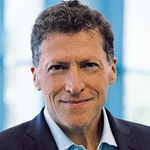
Arnie Weissmann
Paige McClanahan's "The New Tourist: Waking Up to the Power and Perils of Travel" (Scribner, 2024) gives shape and definition to both what comforts and distresses today's travelers about tourism.
A frequent contributor to the New York Times travel section, she approached the job as a journalist, historian, philosopher and consultant, providing examples, context, reflection and recommendations on a topic whose complexities have grown in lockstep with arrival numbers.
She is both critic and enthusiast, and in both roles, thorough and thoughtful. What separates "The New Tourist" from much that has already been written on related subjects is that she approaches her task with an unusual degree of humility and self-awareness. Finding herself in an out-and-out tourist trap -- a canned and hokey presentation of local culture -- she nonetheless joins in the enthusiastic applause at the end. She feels self-conscious, but tourist traps, she notes with all but a sigh, are ultimately "places of escape and entertainment."
And she has little patience for those who see a hierarchy that places themselves above their fellow visitors. Irked by those who "insist on a distinction between 'travelers' and 'tourists,'" she reminds them: "Call yourself a traveler, but never forget you're a tourist, too."
So, who are the new tourists of her title? To begin, they are more sensitive and aware of the people and places they visit and the issues that are impacting both. This is not a completely new concept, but in the face of a growing recognition of overtourism, increasing environmental concerns, rising community pushback and obvious economic leakage, it's appropriate to codify changes that have so far only been outlined in disparate essays and articles. The "new" tourist eschews ignorance of the impacts of tourism, makes an effort to be a good guest and enjoys the benefits of travel.
For those in the industry, a lot of her examples of where tourism has gone wrong will be familiar; the woes of Amsterdam, Barcelona, Angkor Wat and Iceland have been related many times before.
But I found her approach to the English city of Liverpool to be refreshing. She engages with a longtime resident who remembers when the city was very much down on its heels and who is now (for the most part) delighted with its tourism-fueled resurgence. In describing the city's transformation, McClanahan doesn't ignore what the city gave up along the way; so much changed that it was stripped of its Unesco World Heritage status owing to development that led to "serious deterioration and irreversible loss ... of outstanding universal merit."
But looking at Liverpool broadly, she concludes its rise from "Smack City" to a European Capital of Culture was largely due to a form of tourism that "empowered the city to rally its allies behind its ... vision of the future."
McClanahan spends many pages on one destination that is often linked in the consumer press with tourism's ills: Hawaii. As she did in Liverpool, she engaged with longtime residents who have seen and can describe change on the Islands in a way that humanizes what is more typically described in statistics and policy proposals. Having gone to Hawaii annually for more than 20 years to, in part, discuss statistics and policy with tourism stakeholders, I found her insights original and enlightening.
McClanahan's writing style is also noteworthy. It's clear and journalistic, but on occasion the prose soars. She memorably characterizes Barcelona as "so crowded and so vacant." Describing an Icelandic woman she's interviewing, she brings the reader right to where they're standing: "The sky above us is wide and clear and full of wind that whips [Fanney] Gunnarsdottir's braids over her face and sometimes steals her voice right out of her mouth."
As she reviews the various historical views of tourism from Fyodor Dostoevsky to Mark Twain to G. K. Chesterton to E. M. Forster, one might conclude that Twain, 114 years dead, may have best captured the spirit of the "new tourist" in his book "The Innocents Abroad," published 155 years ago. "Broad, wholesome, charitable views of men and things cannot be acquired by vegetating in one little corner of the earth all one's lifetime," he wrote. While that may reflect the high-minded aspirations of travelers, McClanahan also quotes one of his self-effacing observations that reminds us of our own shortcomings as travelers: The group he's with, he wrote, is "a pack of blockheads ... galloping about the world and looking wise, and imagining we are finding out a good deal about it."
In the end, what unites McClanahan, Twain and other "new tourists" is maintenance of self-awareness and empathy in the midst of strange and unfamiliar surroundings, with the full understanding that "your" trip is not only about you or for your benefit alone. It doesn't matter if McClanahan is describing some place you've never been; it's relatable. She's a fellow traveler, her eyes wide open, trying to figure it all out as she goes along.
Like the rest of us.